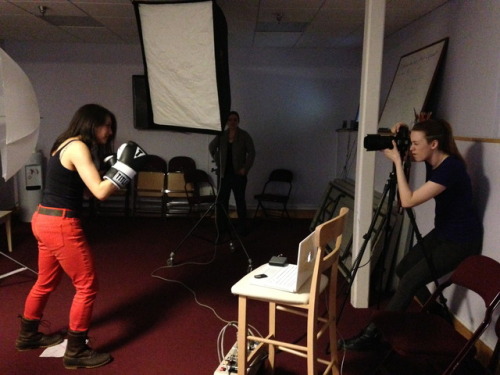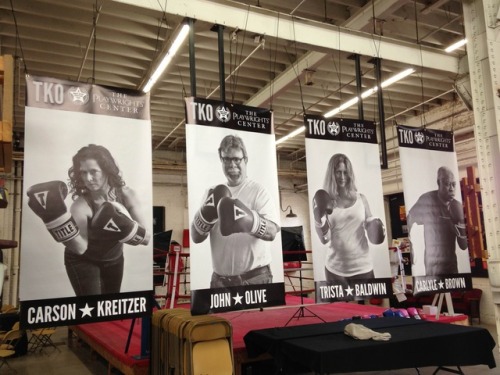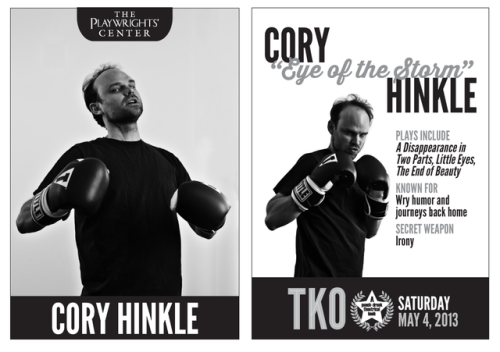"45 years from now: In the US, I’d like to imagine theater that always strives for the present as people should experience it and the future that is inevitable. I hope it will be even more magical, with cross-race, gender, age- casting as usual practices. I expect it to be excellent due to a critical mass of brave women and artists of color joining the decision-making class."- Chiori Miyagawa, Affiliated Writer, on what theater will be like in 45 years
"Forty-five years from now will be a Golden Age of playwriting – and a Stone Age of playwriting. Audiences will collaborate ecstatically with the storytellers on stage, discovering ever-deeper connections between humans, their inner lives, and the universe. And a few blocks away, audiences will look contentedly at plays which soothe their heartstrings by waving familiar banners. For artists, forty-five years from now theatre will be a dangerous calling with ineffable rewards. And a few blocks away, it will be a profession with incredible job security."- Adam Kraar, Playwrights’ Center Affiliated Writer, on what theater will be like in 45 years
"The future is already here: it’s engaging all of the senses with the same ferocity as the most sit-on-the-edge-of-your-seat stage play."- Cindy Cooper, Playwrights’ Center Affiliated Writer, on what theater will be like in 45 years
"The world changes. And doesn’t change. Once there were radios and telephones. Now there are mobile phones and the internet. And the now is already past. And so, we think of the future. We think what stories will be told. We think about what our theatres will look like and feel like and move like. Perhaps there will be more digital theatre and more virtual theatre, but there will always be live theatre and the human to human interaction, because look how long theatre has been around - centuries! - and we are still enamored of the live of liveness, the thrill of contact, the beauty of the human, and the madness of what we know we are possible - we need our theatres to remind us of our madness, our ills, our troubles, our unknown desires and transgressions as much as our joys, ability to be generous and tolerant, and too…too… how we are in concert with nature, and that, although we are humans, we are not the center of the universe, and that market-driven economic structures are not necessarily the ways in which life is defined. So, let’s talk about nature and about how wild it is, and how it goes on without us, and how sometimes it doesn’t because us humans have been selfish about our needs and our greed and have intervened in ways from which we may never recover. Let us think too that theatre is poor. It’s just this bare thing. This naked thing. And it’s okay. Cause when all the lights go out, we can still hopefully be with each other, and learn a little bit about our truths and our fears and our doubts. And the stuff we don’t want to know about. And how form is form - it suits the stories you wish to tell, and one form is not better than another. There’s painting and sculpture and collage and drawing and playing with light and video and other things and neither the materials nor the choice of canvas or no canvas gives something intrinsic worth. A play can be many things. It can be made in many ways. Form and function go together. Remember form and function? And sometimes it’s the high-wire act and sometimes it’s people in a room. The room is always the theatre and the room is always the world. The future is filled with debt and crisis, as is the now, and yet somehow theatre gets made. And it will be. And it will astonish us and anger us and humble us to ourselves."- Caridad Svich, Playwrights’ Center Affiliated Writer, on what theater will be like in 45 years
"- Dominic Taylor, Affiliated Writer, on what theater will be like in 45 yearsIn 45 years, I think there will be two things which will be very different: Architecture and Funding (Earnings) for Playwrights.
George Bernard Shaw said that the ‘playwright has to interpret life…Life as it appears to us in our daily experience is an unintelligible chaos of happenings.’ He wrote that in 1909, and there is a different type of chaos of happenings today, but we still have chaos. In another half century, I think the biggest change will be in the space(s) that we use to examine these happenings. In the past the continental seating of the Bayreuth Festival that Wagner championed or the Thrust Configuration that Tyrone Guthrie adored helped change the theatrical experience in time. I staged Trouble In Mind in a transverse staging, and I was surprised that there is not one conventional theatre that has this as its original footprint. I have no clue what this architecture of the future will look like, but the goal will be to interpret life as we experience it. Not merely affirm our life but interpret it. This new architecture will be informed by the multiplicity of cultures that exist in America. I think this will be very exciting.The other aspect will be how we fund playwrights. Here again, I am hoping in 45 years instead of people saying to me, I want to write for TV for the money, I would love for that to be turned around. Realistically, what will happen is that the way in which playwrights are compensated will make it possible for them (us {if I am still alive}) to make a comfortable living writing for the theatre.
"
"I am no good at predictions. The desire for interesting and surprising stories remains strong, as is evident by our golden age of TV. But people feel increasingly isolated, and going to the theater remains a way to experience something as a collective. TV and film can’t give us that. I actually hope that theater is not so different in 45 years, that it is still a group of impassioned artists yelling and fighting and loving each other in dark dingy spaces in cities like New York, Minneapolis, Boston, and Chicago."- Ken Urban, Core Writer, on what theater will be like in 45 years
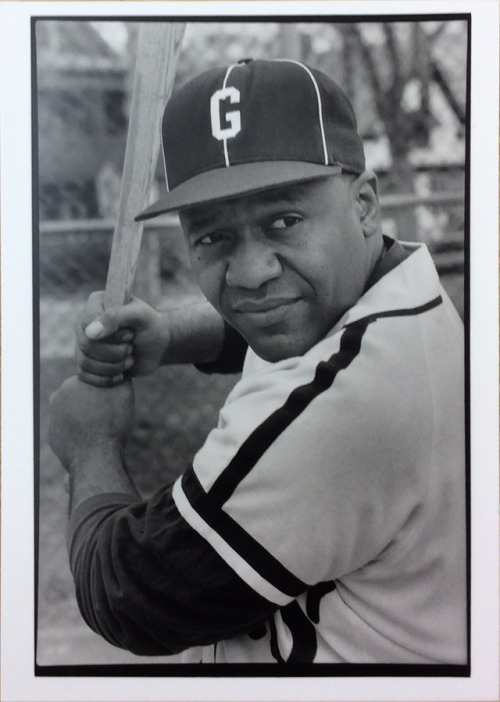
#tbt Edgar Davis as “Cool Papa” Bell in The Ghosts of Summer by Marion McClinton, developed at the Playwrights’ Center in 1995.
Photo by Charissa Uemura
We will be honoring Marion at our 45th Anniversary Gala on May 4, 2017.
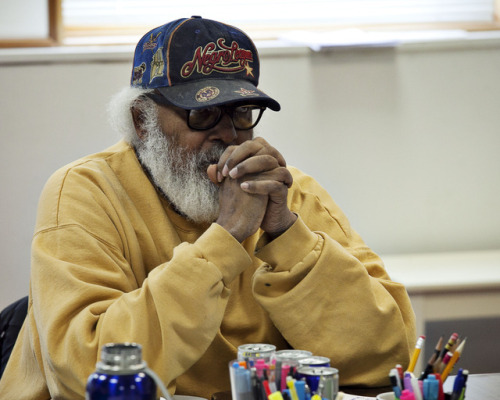
#tbt Marion McClinton directing a workshop of Buzzer by Tracey Scott Wilson. The play was developed at the Playwrights’ Center in 2012 in partnership with Pillsbury House Theatre, where it had its world premiere.
Marion is a permanent Core Writer at the Playwrights’ Center, and has been central to the Center as both a playwright and director for many, many years. We will be honoring Marion McClinton at our 45th Anniversary Gala on May 4, 2017 at the Blaisdell.
Photo by Heidi Bohnenkamp, 2012.
"Theater must move toward being more inclusive and reflective of our communities. That means more plays by and roles for women and people of color. My hope is that we will have achieved parity in all respects by then. I also think that we will be moving away from the large theater house model toward utilizing more intimate and social spaces as theater venues."- Benjamin Benne, Many Voices Fellow, on what theater will be like in 45 years
#tbt that time our playwrights were VERY GOOD SPORTS about participating in TKO, our boxing-themed gala at Uppercut Boxing Gym in 2013.
Pictured top: Jerome Fellow Anna Moench looking fierce in a photoshoot with photographer Heidi Bohnenkamp.
Pictured middle: Featured playwrights on banners at TKO.
Pictured bottom: One of the boxing cards that was printed up for the event, featuring Cory Hinkle.
Our 45th Anniversary Gala is coming up Thursday, May 4, 2017. Details here.
